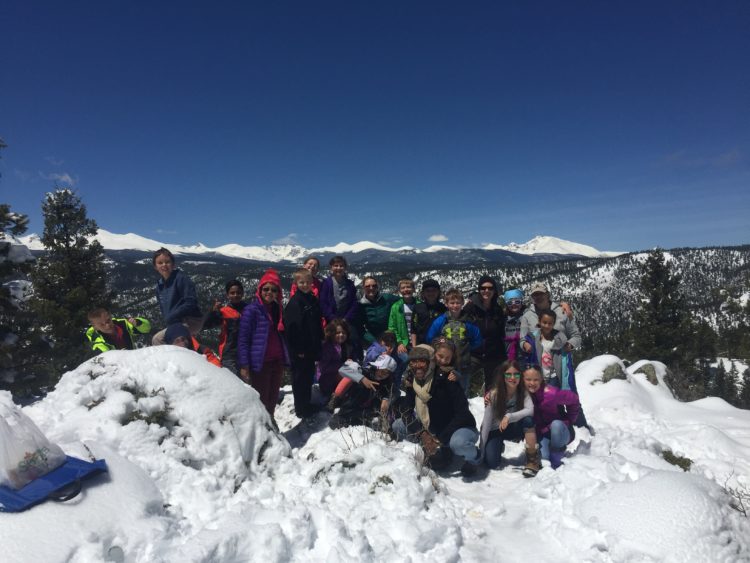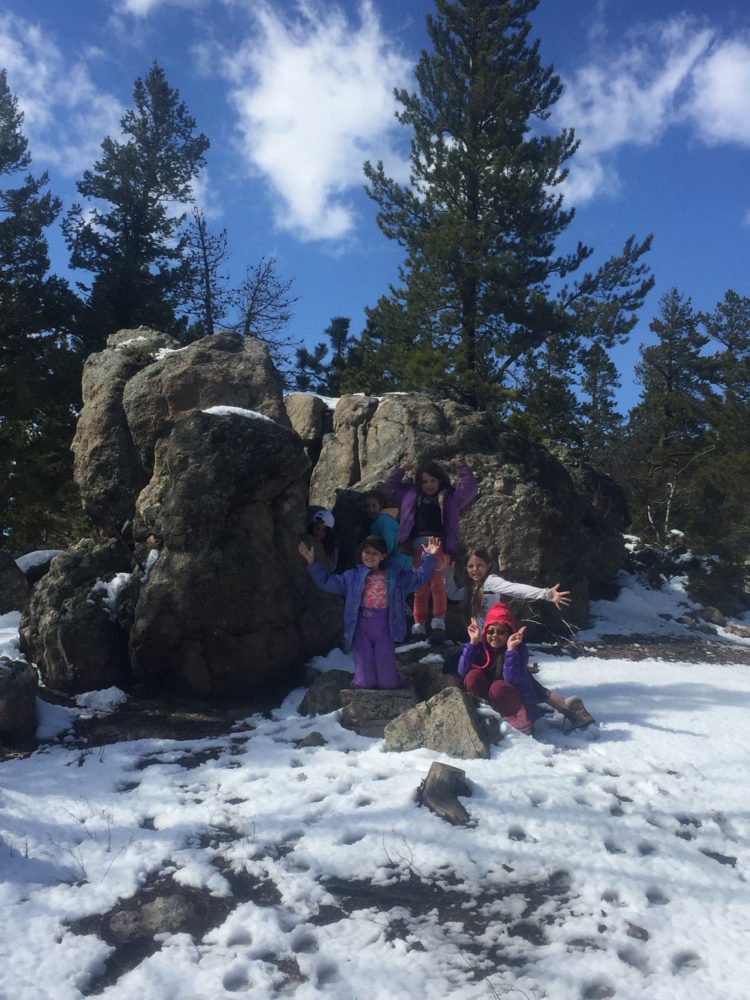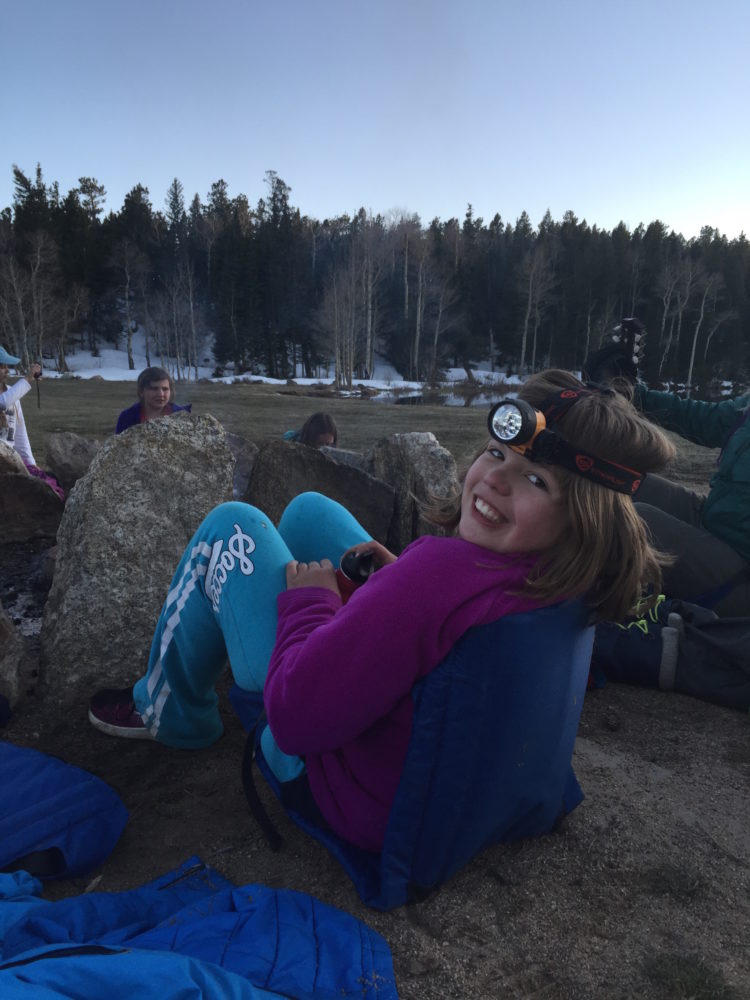
In town, the students were greeted warmly by the one teacher and handful of K-3 students that attend Gold Hill Elementary School. With the help of the students, the teacher delighted Logan school with a detailed slideshow history of the small mining town and its elementary school, followed by a tour of the school and the many hands-on projects they have going for students, including: incubating chicken and duck eggs, a vegetable garden, and a colorful class play. Before the group departed, the teacher gave them a riveting first-hand account of what it was like to live in the town as the uncontrollable wildfire burned its path of destruction through the town.
With a few inches of snow on the ground, the group was grateful to have rustic cabins to stay in at Glacier View Ranch outside of Jamestown, but that didn’t mean that they did not get to experience the fun and beauty of a camping trip. The following morning the group set out for Brainard Lake Recreation Area; before long they encountered a steep, short hill that was covered in the perfect thick layer of snow for sledding. The camping chairs the kids had brought turned out to make decent sleds and they spent the morning in deep, joyous connection with the snow and the sun and the hills and the surrounding trees.
With plenty of sunlight left, the group had a chance for an in-depth lesson on how to make fire; including finding dry tinder, making a tipi, and even trying out fire by friction with bow drills. Some groups were able to produce smoke and some were so enthusiastic about it that they continued to attempt to make fire long after the rest of the group had moved on to other activities. With perseverance and abundant peer encouragement (and the aid of flint and steel), even those who were struggling at first were able to experience the sweet success of making fire that evening. Having made it themselves, the students seemed to enjoy the fire more that evening, celebrating with s’mores and campfire songs. Before bed, they got to immerse themselves in to all of their senses with a drum stalk – a game in which the participants close their eyes as they try to find a slowly beating drum.
On the
Written by: CI Instructor, Sandy Chervenak
See more pictures for this trip on our Shutterfly share site: Click Here.



Leave a Reply